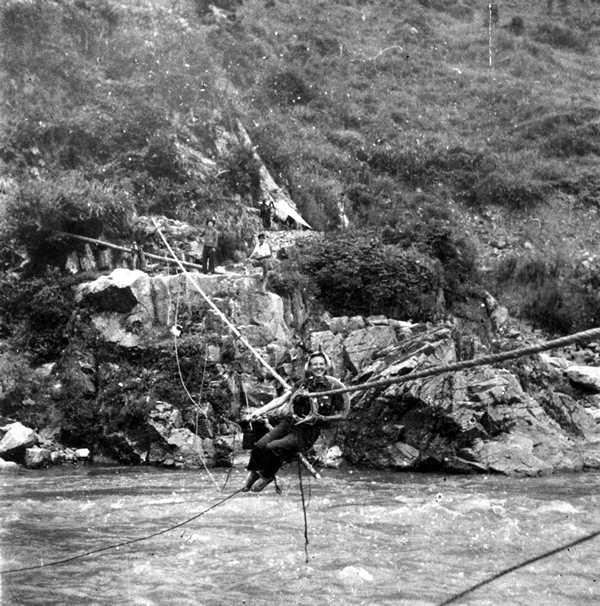 |
|
Crook takes a ropeway across a river in Sichuan province during her social survey of rural areas in 1939. [Photo provided to China Daily] |
During their stay in North China's Hebei province, the couple learned about land reforms being carried out by the farmers and decided to write about them. Among the books they co-authored are Ten Mile Inn: Revolution in a Chinese Village (1959) and Ten Mile Inn: Mass Movement in a Chinese Village (1979).
They were among few foreign scholars allowed to conduct grassroots research on the mainland between the 1950s and the 1970s. Their books became important sources for the outside world to learn about China at the time.
Ahead of New China's founding in 1949, Isabel Crook and her husband were approached by officials of the Communist Party of China and asked if they could stay and teach English as the country was in desperate need of English speakers who could help build foreign relations.
"We were quite thrilled that we could do something significant to support the Chinese revolution," recalls Crook.
She and her husband taught English at Beijing Foreign Studies University until they retired in the 1980s.
Their early students, who became the first generation of foreign-language speakers in modern China, either served in the foreign services or in organizations that had relations with foreign countries. Many of them became English teachers as well.
Excited to join the ranks rather than being observers, Isabel Crook and her husband also actively participated in mass movements like planting trees in suburban Beijing in the 1950s. The teachers and students stayed for several weeks in the homes of villagers outside the city and sang together during breaks.
